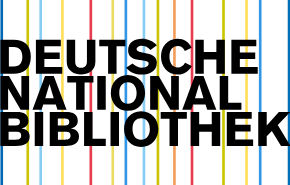THE EFFECT OF MULTILINGUAL AND MULTICULTURAL CONTEXTS IN LANGUAGE TEACHING
DOI:
https://doi.org/10.55640/Keywords:
Multilingualism, Multiculturalism, Language Teaching, Inclusive Education, Intercultural Competence, Diversity, Culturally Responsive PedagogyAbstract
In the modern educational landscape, language teaching is increasingly influenced by multilingual and multicultural contexts. As classrooms become more diverse due to globalization, migration, and international education, teachers face new opportunities and challenges in addressing students' varied linguistic and cultural backgrounds. This article explores how multilingualism and multiculturalism affect language instruction, learner identity, and teaching methodologies. It argues that embracing diversity in language classrooms through culturally responsive pedagogy fosters inclusive education, intercultural competence, and improved learning outcomes. While such environments require adaptable teaching approaches and training, they also enrich the educational experience by promoting linguistic flexibility and cross-cultural understanding.
Downloads
References
Bialystok, E. (2001). Bilingualism in development: Language, literacy, and cognition. Cambridge University Press.
Byram, M. (1997). Teaching and assessing intercultural communicative competence. Multilingual Matters.
Creese, A., & Blackledge, A. (2010). Translanguaging in the bilingual classroom: A pedagogy for learning and teaching? The Modern Language Journal, 94(1), 103–115.
Cummins, J. (2001). Negotiating identities: Education for empowerment in a diverse society. California Association for Bilingual Education.
Garcia, O. (2009). Bilingual education in the 21st century: A global perspective. Wiley-Blackwell.
Garcia, O., & Wei, L. (2014). Translanguaging: Language, bilingualism and education. Palgrave Macmillan.
Gay, G. (2010). Culturally responsive teaching: Theory, research, and practice (2nd ed.). Teachers College Press.
Hofstede, G. (2001). Culture's consequences: Comparing values, behaviors, institutions and organizations across nations (2nd ed.). Sage Publications.
Jessner, U. (2006). Linguistic awareness in multilinguals: English as a third language. Edinburgh University Press.
Kramsch, C. (1993). Context and culture in language teaching. Oxford University Press.
Ladson-Billings, G. (1995). Toward a theory of culturally relevant pedagogy. American Educational Research Journal, 32(3), 465–491.
Villegas, A. M., & Lucas, T. (2002). Preparing culturally responsive teachers: Rethinking the curriculum. Journal of Teacher Education, 53(1), 20–32.
Downloads
Published
Issue
Section
License

This work is licensed under a Creative Commons Attribution 4.0 International License.
Authors retain the copyright of their manuscripts, and all Open Access articles are disseminated under the terms of the Creative Commons Attribution License 4.0 (CC-BY), which licenses unrestricted use, distribution, and reproduction in any medium, provided that the original work is appropriately cited. The use of general descriptive names, trade names, trademarks, and so forth in this publication, even if not specifically identified, does not imply that these names are not protected by the relevant laws and regulations.







